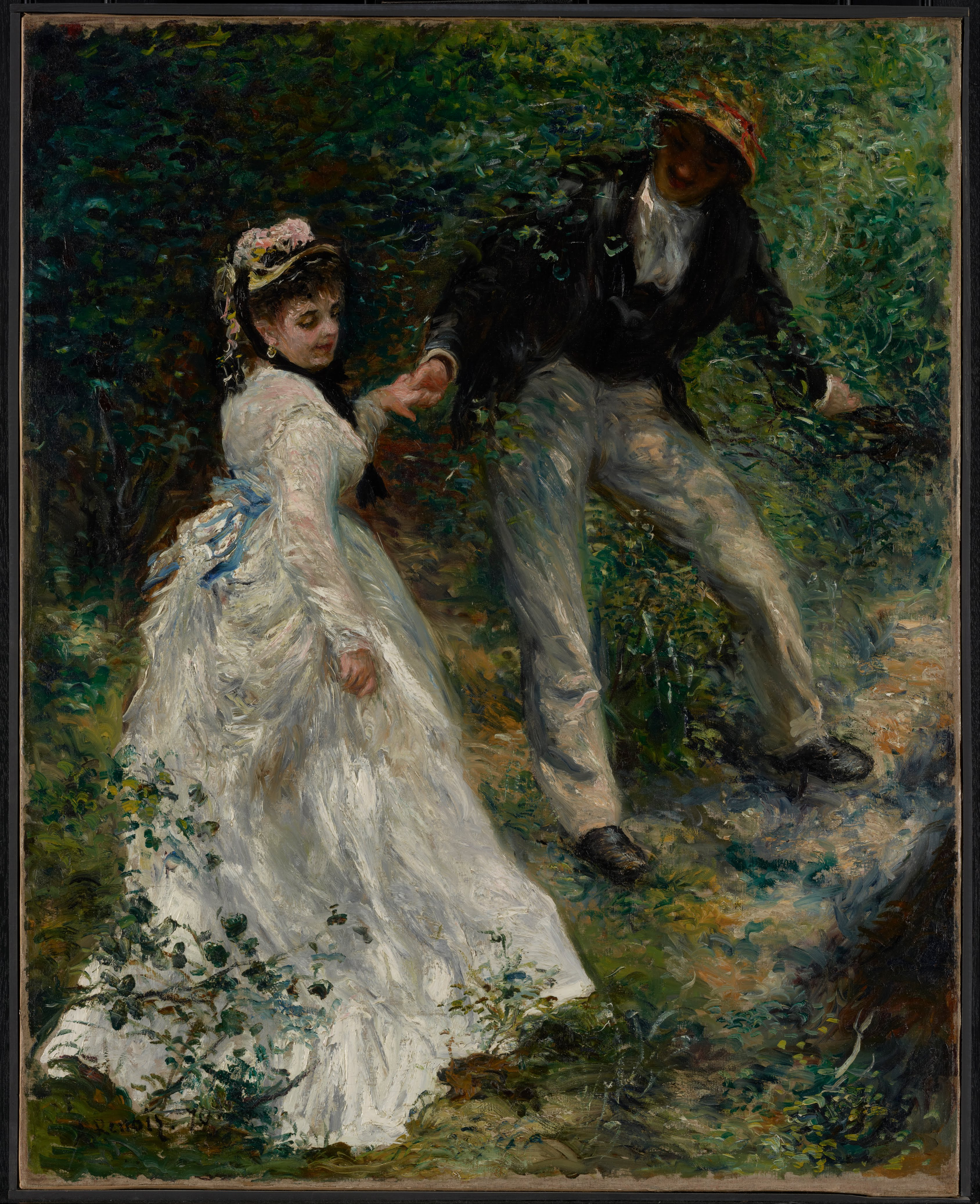Let us imagine a gallant knight and his lady, deeply in love, sitting in a moonlit bower in some rural English county, steeped in the high magic of antiquity, gazing in each other’s eyes, until he leans in, takes her into his arms and presses his lips to hers. Is not this a perfect moment, never to be surpassed? Whatever might possibly consummate it?
They draw back, and he begins to utter his solemn protestations of love. He says such things as lovers are wont to — he promises to her the stilly light of the Moon for eternity, he swears by all flowers to honor their love forever and finally, promises even upon the sanctity of their love itself that he shall love her, thinking, mistakenly, that his words shall lend a crowning pleasure to the moment. Perhaps the wounds committed by his vows are not yet ones fatal to his love, but then he errs again: he takes her in the harsher light of the day to church — or rather, let us grant them marriage at night, which is decidedly so much more romantic than the day, and thus they run to the local parish church, and rouse the priest to marry them, before such solemn witnesses as God Himself – yes, solemn utterances these must be indeed, that dare but once to ratify a temporal love for all eternity!
But then the months turn into years, and this couple, worn out by marriage, have thus worn out their love. The sleepy bower of yore is long since overgrown — mute nature and the trees no longer shelter them from the gaze of society — nor do they have need any longer to hide, for society has long since sanctified their love by the approval implicit in the marriage ceremony. Even God, once defied, has nodded his assent; thus, with no stars left to defy, their love is absconded utterly. But why do these several promises drive love out? Because love is the most immediate, and thus most private feeling. Anybody who has been affected by love knows that in its throes, time seems even to stop, that all the world seems to disappear, that, for that moment, one is elevated beyond the mundane and trivial concerns of all the world. Love must accordingly removed so far as possible from the public eye, for the same reason that great art should be kept from those who know not to appreciate it. Other people, looking from the outside in, might see two rather silly and foolish people kissing and embracing, but for those lovers, there can be nothing in the world that could capture adequately how they feel — save the feeling itself. They are united in feeling love immediately.
Thus, when our gallant knight pulls back from the kiss and begins to promise to his lady that by all flowers he shall love her, he mediates his love. His feeling is indeed still uniquely his own; the arrangements of the words that he uses, however, were perhaps taught to him by poets, the words he uses learned from society and convention. As soon as he speaks his love, he makes it reflective, because he couches it in the vestments of re-presentation. The words themselves are not love; they are only a set of signs that he uses to signal that he loves her; but as soon as one ceases to signal love itself, and signal rather that the love is, one has stepped out of the realm of the immediate into the mediate. For the same reason, their marriage is fatal to their love — because it is its ultimate reflective act. In such things as lovers’ vows are made of, there remains at least the illusion of privacy — not so with marriage, which is a promise before family, before society and before even God Himself. When once they thus declare their love, it is as though the world becomes a mirror; they see no longer each other reflected in their eyes. Marriage makes others to partake of their love and to celebrate it joyously, and in so doing, the world becomes privy and partner to the secretive, inward and essentially introverted nature of love; by forcing love to disclose and evolve itself beyond the lovers, love is sublated and finally destroyed.
The foregoing ought not, however, be taken as an attack on marriage. Those who are married for a long time undoubtedly share a deep bond — a bond of very intimate friendship, one might say. But it is simply to say this: love of the sort defined, love as immediacy, love as that indescribable passion that sweeps away the world and makes one dizzier than the headiest wine, cannot be except that it hide itself. Those who dare to bring it into the public light and give voice to its ineffable pleasures have destroyed it — but perhaps this destruction is, in the end, merely a form of transcendence, whereby they move love into higher spheres.
Alex Chen is a College senior from Palo Alto, California.






